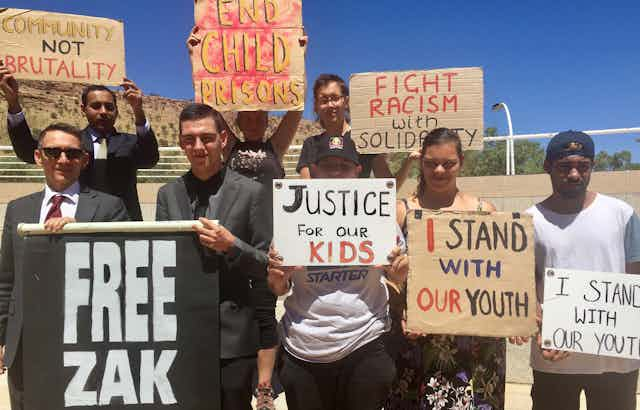Young people are largely excluded from consultation and contribution to government decision-making. Both Australia and New Zealand are signatories to the UN Convention on the Rights of the Child, and are obliged to honour children’s rights to freely express their views in all matters affecting them.
However, neither country has mandated mechanisms to ensure children’s views are heard within their civic institutions. Western models for citizenship participation have been designed by, and for, adults. The default position in social and political theory is to disregard children altogether, or to consider them as learner-citizens.
To understand what the public thinks about children’s political participation, we commissioned a question to be added to the 2016 Australian and New Zealand versions of the International Social Survey Program (ISSP).
What does the public think?
Our question asked:
How strongly do you agree or disagree with children and youth (three-to-18-year-olds) having opportunities to influence government decisions (for example, inclusion in public consultations and inquiries, city councils’ children’s and youth policies, youth parliamentary representatives, councils, voting)?
Respondents selected their position on a five-point scale ranging from “strongly agree” (one) to “strongly disagree” (five), for four age groups (three-to-five, six-to-ten, 11-to-14, and 15-to-18-year-olds).
There is greater support for political contributions of older children. 71% of Australian and 64% of New Zealand respondents support opportunities for 15-to-18-year-olds to influence government decisions. Despite this, the Australian government ensured that 16-to-17-year-olds pre-enrolled to vote were excluded in the forthcoming postal survey on marriage equality.
Research consistently demonstrates that when children and young people have opportunities for active citizenship, they demonstrate a wide range of ways of contributing to their communities. This includes through activities like looking after their local environments, organising public meetings, writing letters, creating petitions and collecting signatures on these, and making submissions to select committees.
Predictors of support
The survey data showed that certain traits were predictive of expressing support for children’s ability to influence government decisions. These included gender, education, political party allegiance, and – in the New Zealand data – identifying as Māori.
The number of Aboriginal and Torres Strait Islander respondents in the Australian data was too small to identify statistically significant associations.
The ISSP asks respondents to identify as either male or female. In both Australia and New Zealand, women are significantly more likely than men to be supportive of children of all ages having opportunities to influence government decisions.
This finding is to be expected. Political rights were first assumed by men, with women and children excluded. Women’s political rights were granted relatively recently, with children’s rights embedded within women’s claims for rights.
Historically, rights and access to education and democratic participation have been closely linked. In our survey, highly-educated respondents were more likely to support 11-to-18-year-olds’ right to influence government decisions.
It might also have been expected that those who voted for the left-of-centre political parties would be more likely to support the prospect of children having influence in government decision-making. Our data confirm this.
Different worldviews affect people’s understandings of political processes. In collectivist societies, democratic decision-making is shared more widely within the community.
In the New Zealand data, Māori respondents were much more likely than non-Māori respondents to support the two youngest age groups’ influence (14% versus 4.7% for three-to-five-year-olds, and 16.1% versus 7.6% for six-to-ten-year-olds).
We also explored the predictive power of other factors, including age, income, religious identification, residence in an urban area, nationality, and having children. Generally, their associations with expressing support for children influencing government decisions were not statistically significant.
Exceptions included a lower tendency for older respondents in Australia and New Zealand, as well as high-income respondents in New Zealand, to report supportive views.
What does this mean?
Our data indicate there is now significant support within both countries for 15-to-18-year-olds to vote, be consulted in children’s and youth policies, public inquiries, and to be parliamentary and council representatives.
With increasing economic, political and environmental insecurity, there is further impetus for children and young people to participate actively in decisions that affect their lives.
And if we take the view that citizenship is a lifelong right and responsibility, support for children’s participation and influence is necessary from birth across all sectors of society.

